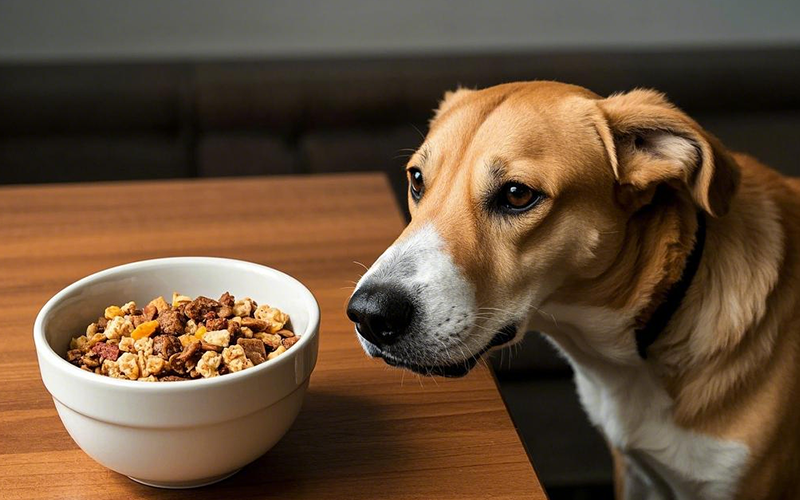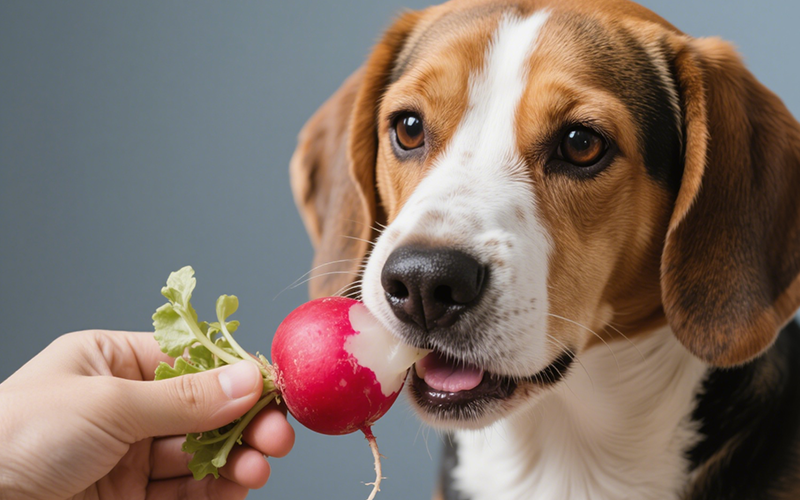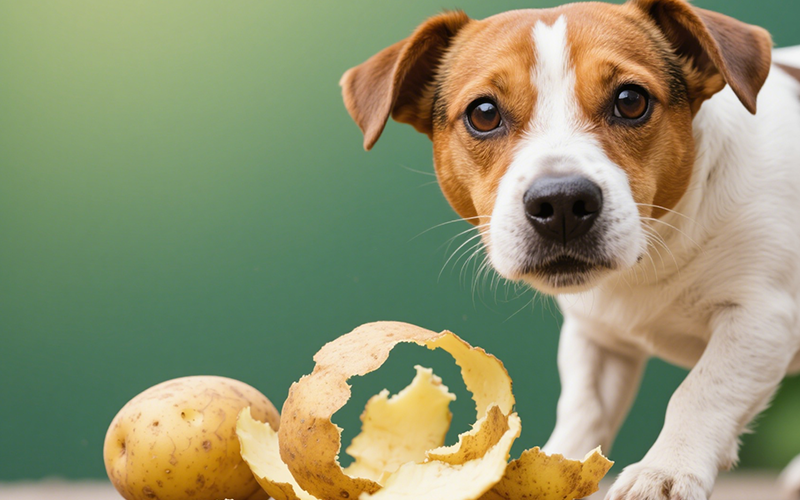Can Dogs Eat Granola? Understanding the Risks and Benefits of Granola for Dogs
- 13 Mar 2025 11:31
As dog owners, it's common to want to share your favorite snacks with your furry friend. Granola, a popular and often healthy snack made from oats, nuts, and dried fruit, might seem like a good option to offer your dog. But before you give your dog a handful of granola, it's important to understand whether it's safe and how to do so responsibly.
So, can dogs eat granola? The answer is not straightforward. While granola can be safe for dogs in some cases, it comes with several important considerations. Let’s dive into the details, the potential benefits, and the risks of giving your dog granola.

What Is Granola? 🌾
Granola is a mixture of oats, nuts, seeds, dried fruit, and sometimes sweeteners like honey, sugar, or syrup. It’s often marketed as a healthy snack due to its high fiber content and the presence of whole grains, nuts, and seeds. While these ingredients may offer health benefits for humans, the situation changes when considering dogs.
Can Dogs Eat Granola? 🐶
Yes, dogs can eat granola in moderation, but with a few important caveats. The main concern is the ingredients used in granola, as some can be harmful to dogs. While plain granola made with simple, dog-friendly ingredients might not be immediately dangerous, granola with added sugars, chocolate, raisins, or artificial sweeteners can pose serious health risks to your pet.
Nutritional Value of Granola for Dogs 🥄
Granola contains a variety of ingredients that can offer some nutritional value to dogs. Here are a few of the components found in granola:
Oats 🌾: Oats are generally safe for dogs and can provide fiber, which helps support digestion. They also offer some protein and essential fatty acids, making them a good base for granola.
Nuts 🌰: Some granolas include nuts like almonds, walnuts, or pecans. While nuts can be a good source of healthy fats and protein, many types of nuts are toxic to dogs. For example, macadamia nuts can cause serious issues, including vomiting and lethargy. Even if the granola doesn’t contain toxic nuts, they can be high in fat, which may lead to digestive upset or pancreatitis in dogs if consumed in excess.
Dried Fruit 🍇: Granola often includes dried fruit such as raisins, cranberries, or dates. Raisins and grapes are particularly dangerous to dogs and can lead to kidney failure, even in small amounts. Other dried fruits can be high in sugar and may cause stomach issues or weight gain.
Sweeteners 🍯: Many commercially available granolas contain added sugars or sweeteners such as honey or syrups. Excess sugar is not ideal for dogs, as it can lead to weight gain, diabetes, and other health issues. Xylitol, an artificial sweetener often found in some processed foods, is extremely toxic to dogs and can cause severe hypoglycemia (low blood sugar) and liver failure.
Potential Risks of Granola for Dogs 🚨
While granola can offer some health benefits when prepared properly, there are several risks that make it an occasional treat, rather than a regular snack, for your dog:
Added Sugar 🍬: Many commercial granolas are sweetened with sugar, honey, or syrup. Excessive sugar can lead to weight gain, obesity, and an increased risk of diabetes in dogs. It's better to avoid giving your dog sugary snacks in general.
Toxic Ingredients ⚠️: As mentioned, raisins, grapes, and chocolate are common ingredients in granola and are dangerous for dogs. Raisins and grapes, even in small quantities, can cause kidney failure. Chocolate, on the other hand, contains theobromine, which is toxic to dogs and can lead to symptoms such as vomiting, diarrhea, seizures, and even death.
High Fat Content 🐾: Some granolas contain high-fat nuts or oils that can be difficult for dogs to digest, potentially leading to stomach upset or pancreatitis. Nuts like almonds and macadamia nuts can also cause gastrointestinal issues or allergic reactions in dogs.
Artificial Sweeteners 🧴: As with other human foods, it’s essential to ensure that the granola you give your dog does not contain harmful artificial sweeteners like xylitol. Even small amounts of xylitol can cause life-threatening effects in dogs, including seizures, liver failure, and death.
Digestive Issues 💩: Granola is often high in fiber, and while fiber is generally good for dogs in moderation, too much can lead to digestive upset. If your dog isn’t used to high-fiber foods, you could notice symptoms like bloating, gas, or diarrhea.
How to Safely Feed Granola to Your Dog 🍪
If you decide to share granola with your dog, follow these safety guidelines to minimize the risks:
Opt for Plain Granola 🍞: Choose plain, unsweetened granola that doesn’t contain raisins, chocolate, or added sugars. Avoid any granola with artificial sweeteners, especially xylitol.
Limit Portion Sizes ⚖️: Granola should be an occasional treat, not a regular part of your dog’s diet. Offer only a small amount—one or two pieces of granola—so that your dog can enjoy it without overindulging in sugar, fat, or fiber.
Check for Harmful Ingredients 🧐: Before offering granola to your dog, check the label for toxic ingredients like raisins, grapes, chocolate, or xylitol. If any of these are present, do not give the granola to your dog.
Consider Your Dog’s Size 🐕: Smaller dogs may be more sensitive to granola’s sugar content or potential choking hazards. Always break granola into smaller pieces for small dogs to avoid choking, and monitor them while they eat.
Homemade Granola 🏡: If you’d like to be extra cautious, you can make your own dog-safe granola at home using dog-friendly ingredients like oats, unsweetened coconut, and safe fruits like blueberries. This way, you can control exactly what goes into the granola and ensure that it’s safe for your pet.
Healthy Alternatives to Granola for Dogs 🥕🍎
If you're looking for healthier, dog-friendly snacks, there are plenty of options that provide better nutrition than granola:
Carrot sticks 🥕: Low in calories and high in fiber, carrots are a great crunchy snack for dogs.
Apple slices 🍏: A sweet and nutritious snack that’s high in vitamins and fiber (be sure to remove the seeds).
Sweet potatoes 🍠: Full of fiber, vitamins, and antioxidants, sweet potatoes make a great, healthy treat for your dog.
Green beans 🥦: Low in calories and high in vitamins, green beans are a healthy snack for dogs.
Pumpkin 🎃: Great for digestive health and high in fiber, pumpkin is a wonderful snack for your dog.
PettureX: Your Pet’s Health Assistant 🐾💻
If you’re ever uncertain about whether a particular food is safe for your dog, PettureX can help. PettureX is an AI-powered pet health assistant that offers 24/7 online consultations and provides guidance on pet health, including safe foods for dogs.
Conclusion: Can Dogs Eat Granola? 🍪
In conclusion, granola can be safe for dogs in small, controlled amounts, but it should not be a regular part of their diet. Avoid granola that contains toxic ingredients like raisins, chocolate, or xylitol, and choose plain, unsweetened versions. Keep portion sizes small, and always monitor your dog for any signs of digestive upset.
For a healthier alternative, consider offering snacks like carrots, apples, or sweet potatoes, which are far more beneficial for your dog’s health and well-being.
Related

Radish Bites for Your Buddy? A Vet-Reviewed Guide on Whether Dogs Can Eat Radishes
- 22 Apr 2025
Potato Peels for Pooches? Unpeeling the Risks and Facts for Dog Owners
- 22 Apr 2025
Crunchy Curiosity: Can Dogs Safely Snack on Pork Rinds? A Deep Dive
- 21 Apr 2025
Pomegranate Seeds and Pooches: A Deep Dive into Whether Dogs Can Safely Indulge
- 21 Apr 2025
Can Dogs Eat Peaches? Vet Explains Benefits, Cyanide Risks & Safe Serving
- 16 Apr 2025
Can Dogs Eat Mulberries? Vet Explains Safety, Benefits & Potential Risks
- 16 Apr 2025
Can Dogs Eat Mozzarella? Vet Explains the Cheesy Truth (Risks & Benefits)
- 16 Apr 2025
Can Dogs Eat Maple Syrup? The Sugary Truth & Why Vets Advise Against It
- 16 Apr 2025
Can Dogs Eat Mango Skin? Vet Explains Why It's a Risky Chew!
- 16 Apr 2025
Can Dogs Eat Mac n Cheese? Vet Explains Why This Comfort Food Is Unsafe!
- 16 Apr 2025
